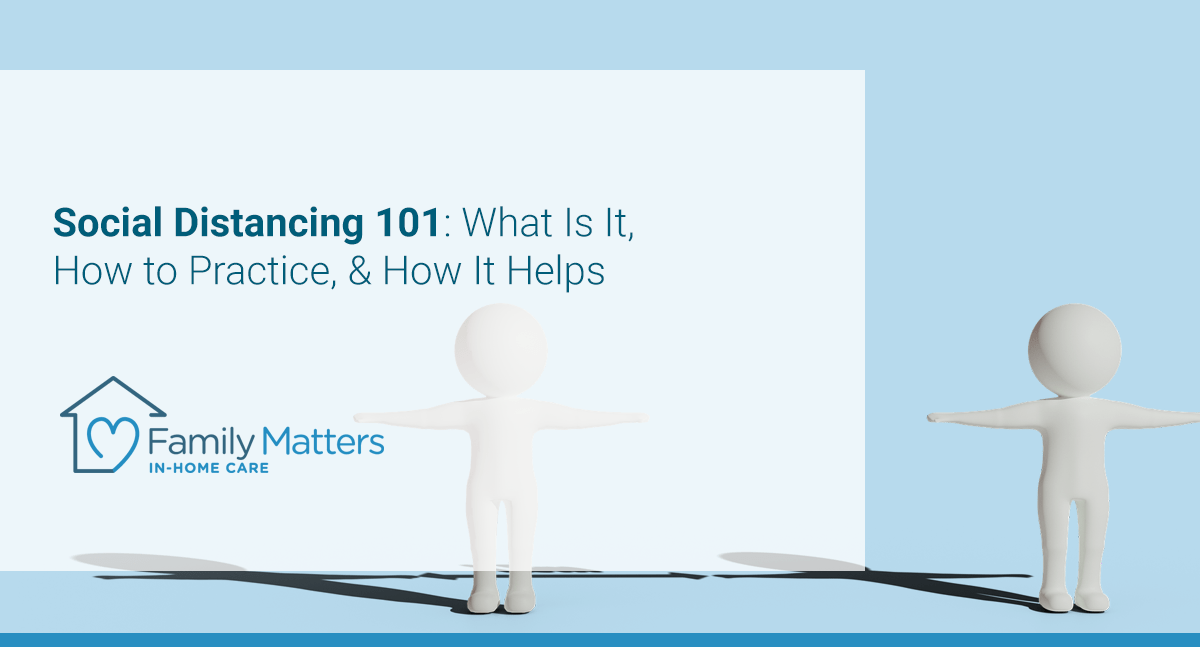
Social Distancing 101: What Is It, How to Practice, & How It Helps
It’s scary out there right now. Life as we know it has essentially come to a standstill, something America hasn’t experienced since the last world war.
Moving about your community and seeing darkened windows of restaurants, bars, and other go-to destinations is surreal.
Even public parks and museums have shuttered, high schools and colleges around the country have cancelled classes, and sports leagues from pee-wee to pro have suspended games or entire seasons.
Simply leaving the house in some parts of the country is risky or discouraged and we’ve all seen the unfathomable pandemonium in regard to supplies of all kinds, from toilet paper to canned goods to hand sanitizer.
We’ve all had to adopt new habits and practice diligent care in helping to prevent the spread of the rampant and powerful coronavirus, known as COVID-19.
Interestingly, the most effective strategy is the opposite of what we’re used to when it comes to health issues. Instead of reaching out to loved ones with help, we must learn to keep our distance in a practice literally known as social distancing.
Extra space is one of the strongest defenses against this latest virus and most other illnesses, but it works.
What is social distancing?
For the unfamiliar, social distancing is the simple practice of keeping space between you and others.
The recommended distance is roughly six feet, which can seem like a mile compared to what we are used to or, say, in relation to a typical sardine-can concert setting or plane ride.
Experts at the U.S. Centers for Disease Control and Prevention agree that illnesses such as the coronavirus are spread by tiny droplets of respiration spread between people closer than six feet apart. Maintaining the six-foot buffer, therefore, is critical in slowing the spread of an illness.
How social distancing helps slow illness and protect vulnerable people
There is no shortage of information on what the coronavirus looks like in infected individuals.
The majority of people contracting the illness experience only mild symptoms (and sometimes none at all) that include difficulty breathing, consistent coughing, and fever.
However, this virus can be much worse for many others, as we’ve seen with so many unfortunate and untimely deaths of late. Elderly people, for example, and those with existing health issues including diabetes, heart problems, and lung disease are likely candidates for serious illness or fatality.
At this point, the only way to avoid the virus is to stay home, the ultimate form of social distancing.
This can be very difficult as the virus incubates for up to a week and people can spread the disease with no visible symptoms.
How and when to practice social distancing
With the coronavirus, colds, flu, and other related illnesses; it is always sound advice to cover your mouth when coughing or sneezing and wash your hands thoroughly.
In the wake of the rapid-fire spread of this new virus, however, the entire United States and indeed the world over have issued additional protective measures including working from home if possible, avoid all crowded places, shop for groceries at off times, don’t visit elderly relatives, cancel all nonessential travel plans, and pitch in to help neighbors who might be in a quarantine status.
At this point in the life of this terrible disease, we should all be practicing social distancing all the time.
Every state in the country in affected to some degree and it is only getting worse. The best we can do now is be aware of what is going on and stay informed with the latest recommendations to keep the virus in check and stay healthy.
CDC Resources for COVID-19
- COVID-19 Prevention and Treatment
- Get Your Household Ready for COVID-19
- What to Do if You are Sick
- COVID-19 Symptoms
- Reducing COVID-19 Stigma
If you or your family member is considering in-home care as part of a plan to age in place, contact Family Matters In-Home Care today for a free consultation. Our team is dedicated to supporting your family and helping older adults enjoy life in the comfort of their own home for as long as possible.
Some of the services offered by Family Matter In-Home Care include: Alzheimer’s & Dementia Care, Bed & Wheelchair Transfer Assistance, Companionship, Housekeeping & Meal Preparation, Personal Care, Recovery Care, and Transportation.
Serving the San Francisco Bay Area and Greater San Diego, Family Matter In-Home Care has offices throughout California including: Campbell, CA, Roseville, CA, San Marcos, CA, and San Mateo, CA.
